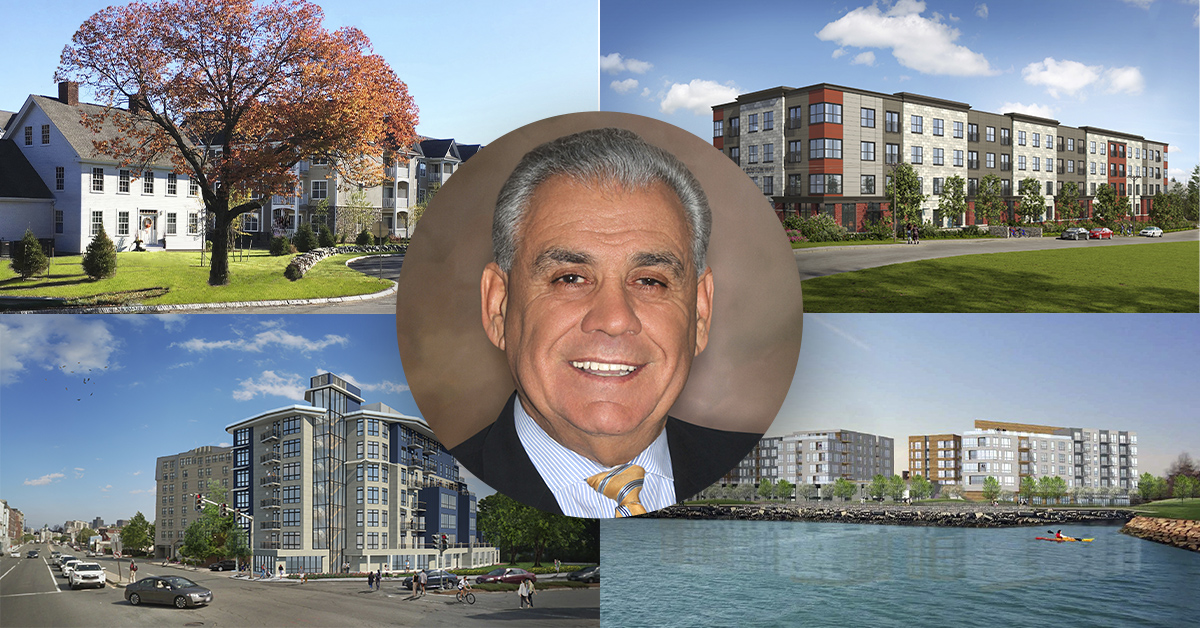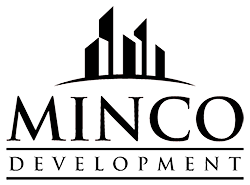In a career filled with ‘firsts,’ Lou Minicucci has devoted decades to building housing for everyone.

Look around the Merrimack Valley and the impact of Louis P. Minicucci, Jr., is everywhere. Well into his fifth decade of real estate development, the North Andover native and president and founder of MINCO has made a career out of providing housing that is both brand new and accessible to those who may otherwise be priced out of town.
The latest example rises along Route 1 at the southern gateway to Newburyport. In a market of skyrocketing real estate prices, Newburyport Crossing at 1 Boston Way adds something in painfully short supply across the state — apartments for rent. Minicucci sums up his philosophy like this:
“I think individuals are entitled to a good education, good healthcare, and good housing,” he says. “Those are things I believe people should have ready access to. I’m in building and construction so I do feel that by building housing, I address the needs of individuals and families, including my grandchildren, children, and friends.”
With the completion of Newburyport Crossing, Minicucci can also add two more “firsts” to his long resume. The four-story apartment building, tucked between the Commuter Rail Station and the Clipper City Rail Trail, is the first LEED-certified building as well as the first Smart Growth community in Newburyport. The project encapsulates not only the vision of city officials to turn a previously underutilized section of this seaside community into a walkable, vibrant hub of retail and housing, it also aligns with Minicucci’s approach to real estate development.
Long before Smart Growth became the guiding principle of urban development, Minicucci predicted in a 2005 interview with The Eagle-Tribune that high-density, transit-oriented living, rather than endless sprawl, would rule future growth.
“We’re entering the renaissance of urban living,” he said then.
Lasting impression
Minicucci should, by now, be quite used to being a trailblazer. At age 24, as a recent MBA graduate of Suffolk University, he became the youngest housing authority executive director ever hired in North Andover. A few years later, he reached another milestone for the town, securing the first federal grant from the U.S. Department of Housing and Urban Development (HUD).
Minicucci poured his efforts into building housing for the elderly and low-income residents, and gained such a reputation for delivering projects on time and on budget that HUD and others across the state took notice. When it came to translating Chapter 40B — the state’s affordable housing statute — into reality, Minicucci became a force to be reckoned with. Soon, his fingerprints covered a range of both federally and state subsidized housing developments in communities such as Needham, Groveland, Methuen, West Newbury, and Rowley.
Those formative years at the housing authority, from 1974 to 1986, made a lasting impression on Minicucci and opened his eyes to the hardship of residents who struggled to find homes they could afford.
“I could personally see the benefits people derived from the housing opportunity provided through these State and HUD-funded programs,” he says. “In many cases, it totally turned their lives around. It gave residents a lot of stability in their later years and it felt really good to be part of that. At the end of the day, it feels very rewarding and gratifying to step back and look at what you’ve created. You can make a living being helpful.”
He noted that prohibitive zoning laws, calling for 2-acre residential lots, contributed not only to urban sprawl, but also to real estate prices out of reach for the average individual.
“Working people with an ordinary median income should be able to live in a decent community with decent housing but zoning restrictions have priced them out,” he says. “A $1-million house in North Andover doesn’t address the housing needs for residents, our children, and grandchildren.”
Changing that fact became the driving force of his career — and the work is far from over.
“There are still too many people living in poverty, locked out of the marketplace and decent housing opportunities,” says Minicucci.
Entrepreneur at heart
The construction gene runs in the Minicucci family. Both his father and grandfather were real estate entrepreneurs. And just as a young Minicucci accompanied his dad to job sites, he has himself employed family members, including his son and daughter, to help with the business.
An entrepreneur at heart, Minicucci founded MINCO Development Corporation in 1982 at a time when the government was pulling the plug on many HUD programs. His one-man-show quickly grew into a full-service commercial real estate company, providing large-scale multifamily housing, subdivisions, planned residential developments, commercial developments, and consulting services.
Now, some 40 years later, he has successfully developed thousands of units of multi-family homes, not to mention schools, office buildings, and retail sites, such as Super Stop & Shops and CVS-anchored centers. (Examples can be found in Minco’s online commercial and residential development portfolio at https://mincocorp.wpengine.com/portfolio/.) MINCO’s presence is also felt in southeast Florida as a result of a 1996 partnership with North Andover-based Northpoint/Southpoint Realty Development.
In 2004 and 2005, he received an opportunity to not only share his expertise, but also add to his own as part of a select group of accomplished individuals invited to participate in an executive program at the Harvard Graduate School of Design. Since graduation, he has returned to exchange ideas with the original group as well a Guest Speaker to Harvard students from a range of disciplines.
Omnipresent in the community
As if his day job didn’t keep him busy enough, Minicucci won a seat on the North Andover School Committee in 1997, pledging to build a new high school, a project he later oversaw as the chairman of the school building committee. During his 13 years as Chair of the building committee, another three schools were constructed for a total of $100 million.
His ties to the North Andover schools stretch back to his youth. Minicucci made such a name for himself as a high school athlete that he was selected All-Conference by the Merrimack Valley Conference All-Star Team and later inducted into the North Andover High School Hall of Fame for football and baseball. Minicucci, or MINCO to be exact, continues to support local talent, sponsoring the Eagle-Tribune Student Athlete of the Year.
Throughout his career, he has also been an omnipresent community volunteer. He has served as chairman of both United Way and the Merrimack Valley Chamber of Commerce, and contributed in countless other ways across the region. (Past managing board member of the Lawrence YMCA, past executive board member of the Boys and Girls Club of Lawrence.)
“I’ve never thought of it in terms of having to give back,” Minicucci says. “To be involved in the community is just something that seems natural to me. I’ve been honored to be part of so many endeavors and helping people out.”
Return to working-class roots
These days, he is a familiar presence in Newburyport, named by Mayor Donna Holaday as one of the key architects of the city’s next chapter. It has been nearly 8 years since MINCO in 2013 submitted a bid to the MBTA to purchase 9.35 vacant acres near the commuter rail station with the expectation that the City would follow through on its plan to establish a Smart Growth District in the area.
The idea of Newburyport Crossing has always been close to his heart. Minicucci spent his childhood summers in the city (his grandparents lived on Orange Street and had a cottage on Plum Island) and recalls the dilapidated buildings and polluted river water before urban revitalization brought it all back to life.
But the transformation into a North Shore gem has come with rising housing prices. In Newburyport Crossing, Minicucci sees a chance to help the Clipper City stay true to its working-class roots while adhering to Smart Growth (Chapter 40R) principles.
“It really is a prime example, a textbook example, of what Smart Growth is all about,” he says. “You can’t get closer to the train station than that; there’s a bike path so you can live there and get downtown in minutes without having to drive; it increases the tax base, provides solid affordable housing, and gives more housing options for those who are downsizing or starting out. I’d say it’s an ideal fit for Newburyport.”
Newburyport Crossing is also perfectly in step with trending demands. Before work from home really became all the rage last year, the new apartment community was designed to include ground-floor live/work units with direct access to the outside. And in addition to being LEED compliant, Newburyport Crossing boasts a Fitwel certification.
Put to practice, it means Newburyport Crossing has integrated strategies to optimize health within a building. Minicucci mentions features like outside air exchangers that improve air quality; pretreated wood to prevent mold; bike sharing; a defibrillator in the gym; special apartment window shades to enhance energy efficiency; and ionizers in the common spaces to kill virus, bacteria, and mold.
“It all creates a healthy environment for people to live in so we were a little ahead of our time,” he says. “I’d say Newburyport Crossing exemplifies the most comprehensive measures one can take to promote energy conservation, a low carbon footprint, and healthy living.”
As Minicucci now eyes the second phase of the Smart Growth development in Newburyport at 3 Boston Way, he envisions a building constructed in line with the PHIUS Certification program, also known as Passive House. Even more stringent than LEED, passive building principles offer a path to Net Zero and Net Positive buildings by minimizing the load renewables are required to provide. For Minicucci, it would be — yes, you guessed it — another first.
Newburyport Crossing is now leasing.



